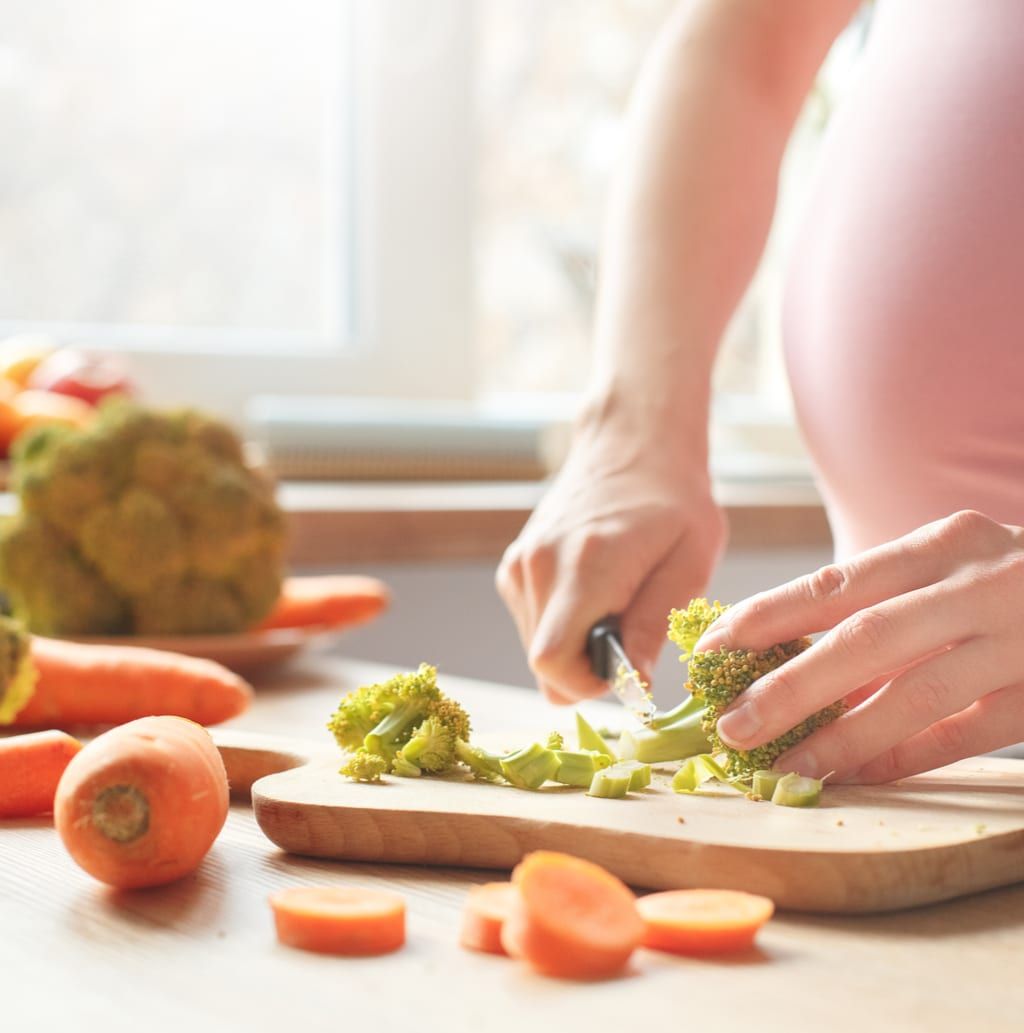Moms-to-be have to be careful about what they eat, how the food is prepared, and how those illnesses will affect their child’s development. If you go to any OB-GYN clinic, they’ll inform you about the long list of foods you should avoid, and how to prepare food to keep their bodies healthy. This is due to the fact that pregnant women are ten times more at risk of getting food poisoning from bacteria than other people. According to the CDC, about 48 million people get sick from foodborne illnesses each year, and for pregnant women, it’s especially important to protect the fetus during its gestation.
What is Foodborne Illness?
Foodborne illnesses are sicknesses that occur when harmful microorganisms, such as bacteria, parasites, and viruses, come into the system through food. These illnesses can also come from chemical contaminants in drinking water and some foods. The three most common foodborne illnesses include:
E.Coli
While there isn’t much connection between health risks during pregnancy and E.Coli, the disease can most often occur through eating dairy products, eggs, lunchmeats, poultry, meat, and seafood. For pregnant women who come across E.Coli, dehydration, among its other symptoms, should be cared for is severe complications arise.
Salmonella
Salmonella infections are a serious condition during pregnancy, as salmonella can pass through to the baby and cause meningitis, the inflammation of the protective membranes surrounding the brain and spinal cord, and create congenital disabilities down the road. This is due to how the bacteria pass through the blood and cause dehydration, among other symptoms, that can be life-threatening to both the mother and baby.
Listeria
Pregnant women and newborns are especially prone to Listeria due to their weakened immune systems. Pregnant women can pass the bacteria through their bloodstream to the fetus, causing fetal death, pre-term labor, or infection in the newborn after delivery.
The 4 Steps For Food Safety
To protect against these illnesses, pregnant women can take these four steps recommended by the FDA:
Clean
Wash your hands thoroughly, especially before and after handling food. Wash your cutting boards, rinse raw fruits and vegetables, and use warm soap and water.
Separate
Separate raw meat and seafood from ready-to-eat foods. Use a cutting board for only raw foods, and others for fresh vegetables.
Cook
Cook foods all the way through, and use a thermometer to check temperatures. Discard foods left out for more than 2 hours.
Chill
Refrigerate perishables, and use ready to eat perishables as soon as possible.
The Benefits of Food Safety
Practicing food safety during your pregnancy can help reduce the risks of foodborne illnesses for you and your baby. When you work with our nutritionists and obstetricians, our practitioners can help you:
- Avoid foodborne illnesses
- Guide your nutrition plans
- Teach proper cooking methods
- Decrease the risks of congenital disabilities
- Help you have a safe, healthy pregnancy
Common Questions About Food Safety
Why is food safety important during my pregnancy?
The hormonal changes during pregnancy weaken the immune system, making them more vulnerable to foodborne illnesses, and making the fetus more vulnerable as its immune system has not fully developed yet.
Is eating cold/chilled food bad during pregnancy?
Not necessarily – only when it’s perishable, such as cold cuts, hot dogs, fresh fruits and vegetables, because diseases such as Listeria can grow in cold temperatures.
What foods can cause miscarriages?
Unpasteurized cheeses and milks, raw eggs, sprouted vegetables, under-cooked or raw meats, and unpasteurized fruit juices can cause miscarriages because of the bacteria they can contain.
How We Can Help With Food Safety
Our clinic cares about the patients that come into our office. We work with pregnant women and help guide them in nutritional care and food safety to help protect both the mother and child during their trimesters. We aim to bring professional, trustworthy services to our patients by providing the resources women need to have a healthy, successful pregnancy throughout their lives.

